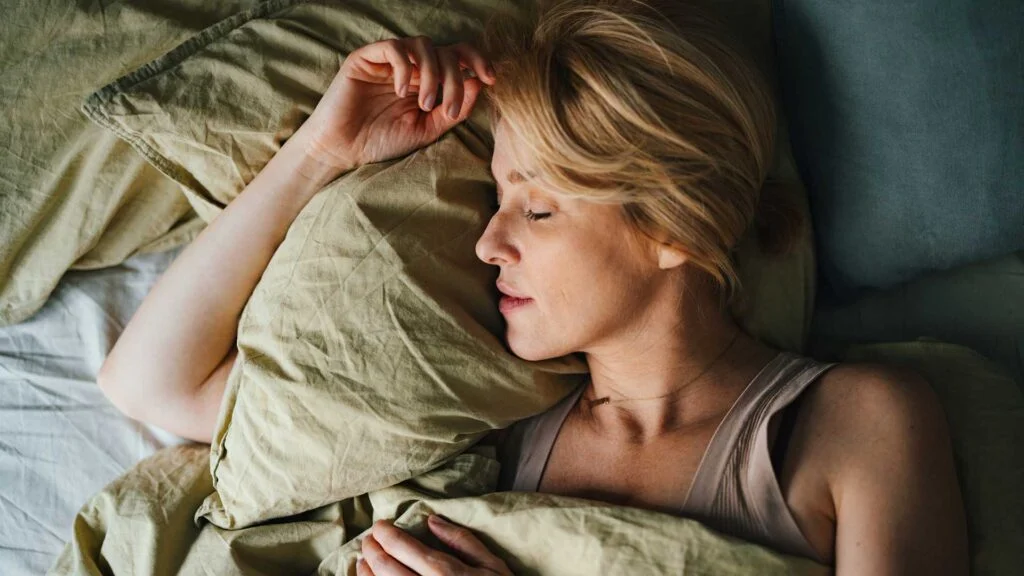
We all know the feeling when we wake up in the morning after a night filled with either detailed or faint “memories,” allowing us to remember bits and pieces throughout the day. Sometimes these dreams are filled with familiar faces and similar scenarios that happened a day or even a month ago. However, sometimes our memories can be so extreme and vivid, prompting us to think if these same scenarios happened in our real lives.
In a recent study published in the Royal Society Open Science Journal and conducted at the University of York, researchers discovered that our dreams incorporate both realistic elements from our lives and false memories. This blend often leads us to ponder about whether that weird event really happened or not. (1)
Researchers collected 488 participants and had them remember a list of words after not seeing them for a 12-hour interval. Additionally, some of these participants were to sleep during that 12 hour time frame while the control group was not allowed to.
And the results had a little twist. It was found that the participants who slept were able to recall more of the words. However, they even made up their own “remembered” words that were not on the list.
The researchers made two categories. One for the made-up words and another for the actual words indicated on the list. For the actual words, the researchers referred to them as “lure words.” For the completely unrelated words, the participants came up with, those were called “intrusion” words.
“We found that participants had better memory for the lists in terms of better recall of the words in the lists. But their errors were also revealing — they made fewer random errors (intrusions), and more errors that suggest that they had learned the gist of the lists,” Gareth Gaskell said, a sleep psychology professor at the University of York in England said in a Newsweek article.
Gaskell also told Newsweek that the findings suggest that there is a positive impact on memory accuracy since participants who slept better were more likely to accurately remember the list of words given to them.
However, since this group was asleep and their false memories may have gotten in the way, they were more likely to provide incorrect responses that were related to the studied material compared to unrelated information.
“Future events won’t be identical to the past events, so a gist-like representation might actually be more useful than a ‘perfect’ detailed representation,” Gakell said. “So what sleep might be doing is helping us to store memories in a gist-like way that can then be better applied to our future interactions.”
Surprisingly enough, researchers also found that the time of day the participants were given the list of words also had an impact on the results.
When participants had to recall the words in the evenings, this led to more intrusion word errors compared to the participants who were asked to recall the words in the morning.
This study gives a lot of insight into the strange ways our brains work overnight, but we still wanted to speak with some experts to know more about what happens with our memories and why the time of day affects how much information we are able to remember.
Why Does Sleep Change Our Memories? An Expert Weighs In
We aren’t the only ones that understand the importance of our memories. Dr. Christina Geiselhart, LCSW at Thriveworks said it is important that our memories are valid and reliable, as we rely on them so much throughout our lives. (2)
However, it doesn’t become so reliable when our brain starts distorting our memories while we sleep, leading us to believe events happened when they didn’t. Geiselhart said that when we sleep, our brain is pretty active, as it is running through various pieces of information and trying to pair it together.
To help understand how the brain works, she offered us a hypothetical situation. She said the brain is similar to a filing cabinet as it is trying to file all the new information into new spots. But there might be one problem. The labels you have on those cabinets might be too general for that new information that needs to be placed somewhere.
“The brain will attach similar concepts or concepts that seem to go together even if they do not,” she told Sleepopolis. “This could be one of the reasons people can recall some details of a memory vividly while other details are forgotten.”
Another factor that comes into play that she told us about is confabulation. This consists of your brain containing gaps in your memories. In order to try and replace those gaps, it will begin to connect or associate certain pieces of information.
Also, our brains receive loads of stimulation over the course of the day. She said our brains are constantly bombarded with distractions and external influences.
“While we sleep our brain is still processing the external world through our five senses ( taste, smell, touch, sight, and hearing)” she said. “If our brain is getting new information to process while we sleep, it can then pair daytime information with this new information which can cause bizarre pairings and even odd dreams.”
As seen in the study, the time of day we are exposed to certain information does affect how we process it. Charlynn Ruan, clinical psychologist and the founder and CEO at Thrive Psychology Group said that a lot of the unprocessed memories can only be stored in our long term memory once it’s time for sleep. (3)
“So, one possible reason may be that when someone is studying these words at night, they are adding it to an already very full bank of the day’s memories that are waiting to be processed and are more likely to get mixed in with those unprocessed memories before being processed during sleep,” she told Sleepopolis.
The brain is a complex part of our brain. We rely on it so much (and maybe a little too much) so before trusting a memory, make sure it truly happened and that your brain is not playing tricks on you.
Sources
1. Mak, Matthew H. C., et al. “A Registered Report Testing the Effect of Sleep on Deese-Roediger-McDermott False Memory: Greater Lure and Veridical Recall but Fewer Intrusions after Sleep.” Royal Society Open Science, vol. 10, no. 12, Dec. 2024, p. 220595. DOI.org (Crossref), https://doi.org/10.1098/rsos.220595.
2. Thomson J. Psychologists find sleep can distort our memories. Newsweek. December 6, 2024. Accessed December 7, 2024. https://www.newsweek.com/sleep-helps-remember-things-false-memories-1849564.
3. Thriveworks counseling: High-Quality Therapy & Psychiatry. Accessed December 7, 2024. https://thriveworks.com/therapist/il/christina-geiselhart.
4. Thrive Psychology Group. Accessed December 7, 2024. https://www.mythrivepsychology.com/.
Geiselhart, Christina. Personal Interview. December 6, 2024
Ruan, Charlynn. Personal Interview. December 7, 2024.


























